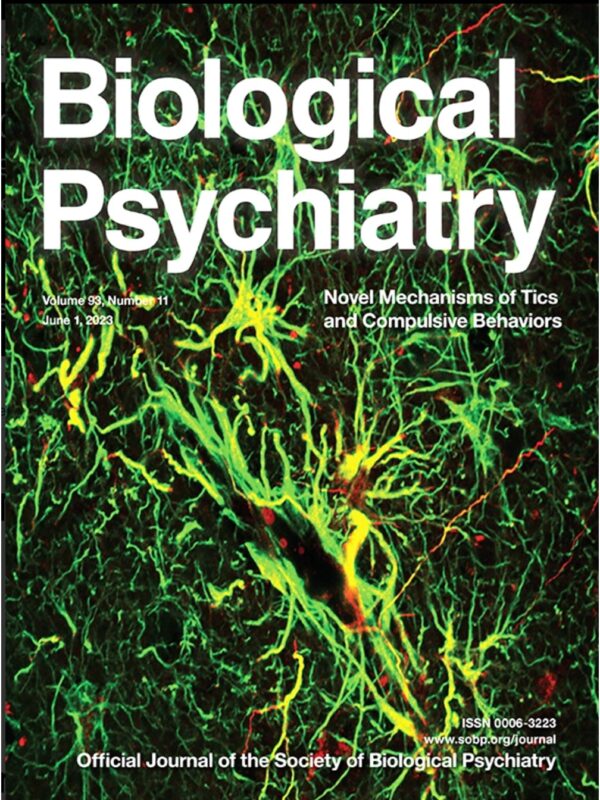Abstract
Background: Astrocytes control synaptic activity by modulating perisynaptic concentrations of ions and neurotransmitters including dopamine (DA) and, as such, could be involved in the modulating aspects of mammalian behavior.
Methods: We produced a conditional deletion of the vesicular monoamine transporter 2 (VMAT2) specifically in astrocytes (aVMTA2cKO mice) and studied the effects of the lack of VMAT2 in prefrontal cortex (PFC) astrocytes on the regulation of DA levels, PFC circuit functions, and behavioral processes.
Results: We found a significant reduction of medial PFC (mPFC) DA levels and excessive grooming and compulsive repetitive behaviors in aVMAT2cKO mice. The mice also developed a synaptic pathology, expressed through increased relative AMPA versus NMDA receptor currents in synapses of the dorsal striatum receiving inputs from the mPFC. Importantly, behavioral and synaptic phenotypes were rescued by re-expression of mPFC VMAT2 and L-DOPA treatment, showing that the deficits were driven by mPFC astrocytes that are critically involved in developmental DA homeostasis. By analyzing human tissue samples, we found that VMAT2 is expressed in human PFC astrocytes, corroborating the potential translational relevance of our observations in mice.
Conclusions: Our study shows that impairment of the astrocytic control of DA in the mPFC leads to symptoms resembling obsessive-compulsive spectrum disorders such as trichotillomania and has a profound impact on circuit function and behaviors.
Keywords: Astrocytes; Dopamine; Grooming; Obsessive-compulsive disorder (OCD); Prefrontal cortex; VMAT2.



